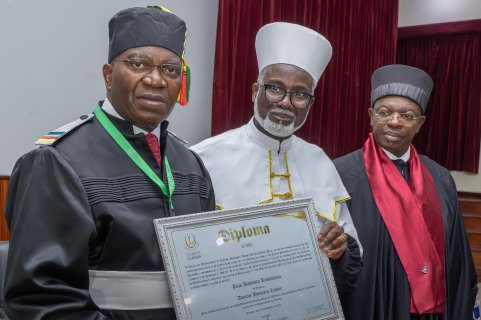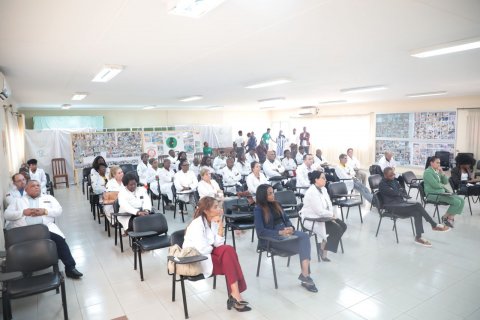"The change that should have the most impact, especially on Portuguese companies that provide services to Angolan companies, or have clients in Angola, is the increase in taxation on the provision of services by non-resident entities, which currently has an industrial tax withholding tax in Angola of 6.5 per cent if the company is not applying the double taxation convention," explained the coordinator of the tax department of the law firm Miranda & Associados.
In an interview with Lusa about the package of tax changes awaiting promulgation by the President of the Republic, after being approved in the National Assembly, the tax specialist explains that Portuguese companies may see taxation fall to 5 per cent, instead of increasing to 15 per cent.
"According to the general rules, for those who do not apply the double taxation convention, there is taxation of 6.5 percent, which is expected to rise to 15 percent, a considerable increase, but there is a convention to avoid double taxation between Portugal and Angola, and the convention applies, the rate falls to 5 percent," she said.
This, she noted, "places Portuguese companies in a considerable competitive advantage in terms of the tax cost of providing services in Angola," given that Angola only has an agreement to avoid double taxation with Portugal.
In an interview with Lusa, Miranda's tax coordinator explained that changes to the tax laws are expected in the area of industrial tax, i.e., corporate income, the code of employee income taxes, and also more general changes in the relationship between taxpayers and the Angolan authorities.
"For companies with branches in Angola there is a reduction in the industrial tax rate from 30 percent to 25 percent, and there is also the possibility of extending the reporting of losses from three to five years, which may be important for Portuguese companies with branches in the country due to the great devaluation of the kwanza," she said.
"In terms of labour income tax, there's an increase in taxation, as at the moment tax rates are between 7 and 17 per cent, and it's expected to rise to between 9 and 25 per cent", said Lília Azevedo, pointing out that "this affects all national or foreign workers who work in the country, and therefore will certainly affect Portuguese expatriates".
Asked if the changes have an underlying general objective, Lília Azevedo replied that they do not and argued that the idea fits more "in an effort to implement modern legislation that follows the best international practices" and recalled that tax reform in Angola has been underway since 2011.
In presenting the broad outlines of these proposals to parliamentarians on 24 April, Finance Minister Vera Daves said the fundamental objective of the changes is "to make or unburden the tax burden on lower incomes, to maintain or maintain the tax burden on intermediate income brackets and to introduce progressivity in higher incomes".







